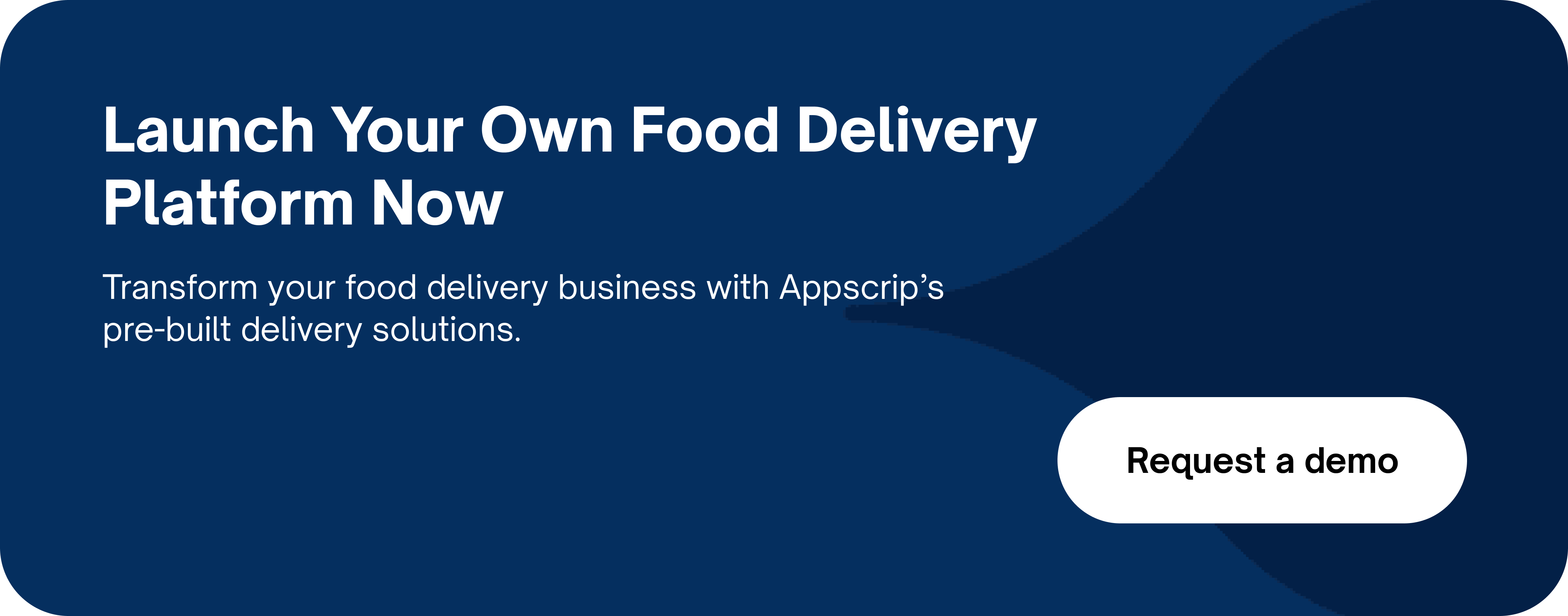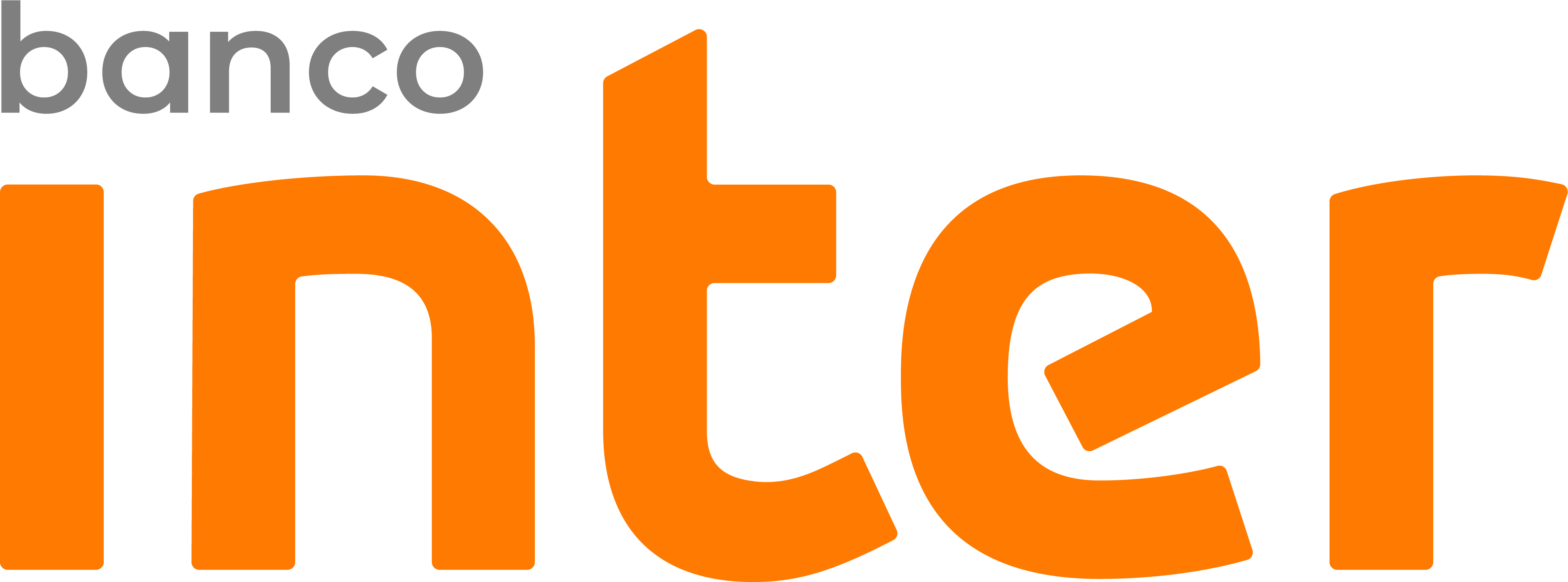In today’s fast-paced world, delivering delicious food has become more than a necessity not only for restaurants but for consumers too. The food delivery industry has seen significant growth in recent years, with various apps vying for attention from hungry consumers.
In the past five years the online food delivery segment has rocketed from a $20 million industry to over $200 million. The online food delivery market in the U.S was valued at $4.91 billion in 2021. The market is expected to reach $22.14 billion by 2027, expanding at 28.75% CAGR between 2022 to 2027.
In this blog, we will explore the top food delivery apps in Dallas, Texas, and delve into their business models, name their founders, provide total funding info, discuss their unique selling propositions, and provide a brief on each one with revenue details.
Top Food Delivery Apps In Dallas
Whether you’re craving local delicacies or gourmet cuisine, there’s always an app that can satisfy your culinary desires right where you are. With the convenience of these apps, enjoying a delicious meal in the comfort of your home is just a matter of minutes.
The top food delivery apps in Dallas offer a unique set of features and advantages to cater to the diverse needs of its residents.
Uber Eats
Founder: Uber Technologies Inc
Total Funding: Approximately $24.2 billion (Uber’s overall funding)
Business Model: Uber Eats operates on a commission-based model, where restaurants give a cut on each order to Uber Eats for the platform’s services.
Unique Selling Proposition: Uber Eats USP is its extensive network of restaurants, seamless user experience, and integration with the Uber ride-sharing platform.
Brief on the App with Revenue Details: Uber Eats has been making waves in the food delivery industry and now commands a market share of 23%, second only to the industry leader. Uber Eats is popular among folks who love ordering food, with a whopping 486 million who depend on it regularly.
Uber Eats is among the top food delivery apps in Dallas, offering a wide range of cuisine choices. It generated over $4.8 billion in gross bookings in Q4 2020.
DoorDash
Founders: Tony Xu, Andy Fang, and Stanley Tang
Total Funding: Over $2.5 billion
Business Model: DoorDash operates on a commission-based model like Uber Eats, charging restaurants for using its platform for food delivery services.
Unique Selling Proposition: DoorDash is known for its strong presence in suburban and smaller markets, as well as its commitment to supporting local businesses.
Brief On The App With Revenue Details: There are various reasons why DoorDash has been successful, one important factor is due to their clear audience demarcation. DoorDash separates its customers into two groups instead of clubbing all into one category and treating them alike. They segregate them as: Users and Restaurants.
For DoorDash, users are those who seek convenience and high-quality food, while they’re willing to pay for these qualities.
The second audience, restaurants are those who don’t have the means to deliver food or have adequate seating for dining-in. This clear segmentation helps DoorDash strategize for each group in an appropriate manner to reap success.
DoorDash has experienced rapid growth in recent years and is among the top food delivery apps in Dallas. It boasts of an extensive selection of restaurants and in 2020, the company’s revenue surpassed $2.8 billion.
Grubhub
Founders: Matt Maloney and Mike Evans
Total Funding: Approximately $84.1 million
Business Model: Grubhub primarily earns revenue through commissions they charge restaurants and additional fees to customers for delivery services.
Unique Selling Proposition: Grubhub offers a user-friendly platform with an emphasis on providing detailed restaurant information and loyalty programs.
Brief On The App With Revenue Details: Grubhub has been a prominent player in the food delivery industry with 9.17 million users, 300K daily orders, 75K restaurant partners, and serving in 1,100 cities across the U.S and the U.K. In 2020, it reported revenue of over $1.8 billion.
Grubhub can attribute its success to their never-die-approach of exploring newer territories to improve their offerings.
Postmates
Founders: Bastian Lehmann, Sean Plaice, and Sam Street
Total Funding: Over $900 million
Business Model: Postmates charges restaurants commissions and customers delivery fees for the use of its platform.
Unique Selling Proposition: Postmates targets millennials and powers local, on-demand logistics looking for fast deliveries. Postmates believes in delivering anything, this not only includes food but also groceries and other retail items.
Brief On The App With Revenue Details: Postmates gained popularity for its versatility and is now a part of the Uber family. In 2020, it was acquired by Uber for $2.65 billion. When you opt for delivery with Postmates in LA, in most probability you would get your stuff delivered by Uber.
Favor
Founders: Zac Maurais and Ben Doherty
Total Funding: Undisclosed (Acquired by H-E-B)
Business Model: Favor operates with a delivery fee model, charging customers a flat fee for delivery services.
Unique Selling Proposition: Favor is known for its focus on customer convenience and its partnership with H-E-B, a major Texas-based grocery store chain.
Brief on the App with Revenue Details: Favor’s revenue details post-acquisition by H-E-B are not publicly available.
Caviar
Founder: Jason Wang and Andy Zhang
Total Funding: Approximately $15 million (Acquired by DoorDash)
Business Model: Caviar followed a commission-based model that is pretty much similar to other food delivery apps.
Unique Selling Proposition: Caviar specialised in partnering with high-end and gourmet restaurants, offering a premium dining experience.
Brief On The App With Revenue Details: Caviar was acquired by DoorDash in 2019 for $410 million, and its specific revenue details post-acquisition are not publicly disclosed. Hence we have counted Caviar among the top food delivery apps in Dallas.
Waitr
Founder: Christopher Meaux
Total Funding: Approximately $85 million
Business Model: Waitr charges restaurants with a percentage of each order’s total and, in some cases, passes on a portion of it as delivery fees to drivers.
Unique Selling Proposition: Waitr focuses on serving smaller markets and emphasises quick delivery times.
Brief On The App With Revenue Details: Waitr, based in Lafayette, Louisiana is a leading player in the on-demand food ordering and delivery domain. Founded in 2013 Waitr and its sister brand Bite Squad, connect local restaurants and grocery stores to hungry diners in underserved U.S markets.
Together they open an avenue to conveniently discover, order and receive amazing food from local restaurants, grocery stores and national chains. In 2018 Fertitta Entertainment acquired Waitr for $308 million. Waitr generated revenue of approximately $50.4 million in 2019.
Conclusion: Top Food Delivery Apps In Dallas
Startups and small restaurant owners generally struggle to gain visibility for their restaurants and thus lack desired number of food orders. Having an on-demand food delivery system has become necessity for restaurant businesses to achieve success.
The smartest strategy a restaurant could think about for long-term stability and profitability is to have its own food ordering and delivery app. In fact, 38.4% of a restaurant’s revenue is generated through online food ordering, which is significant. Thus, more restaurant owners are keen on investing in their own online food ordering systems.
Restaurant owners now know online delivery is the short cut to success. But then think again, depending on third-party apps like UberEats, Deliveroo or Swiggy is not the best option as their commissions can eat into your profits. But then, you can own a restaurant delivery app with the help of an app development agency. This is where Appscrip comes in. Know more.

After an Engineering degree and a Diploma in Management I devoted 16+ years working in the automotive industry. My innate skill and extreme passion in writing, encouraged me to adopt it up as a profession. I have been writing for more than 10+ years in the software industry. The 400+ blogs I published are informative, exhaustive and interesting to a professional and causal reader.












Good information available in the blog.